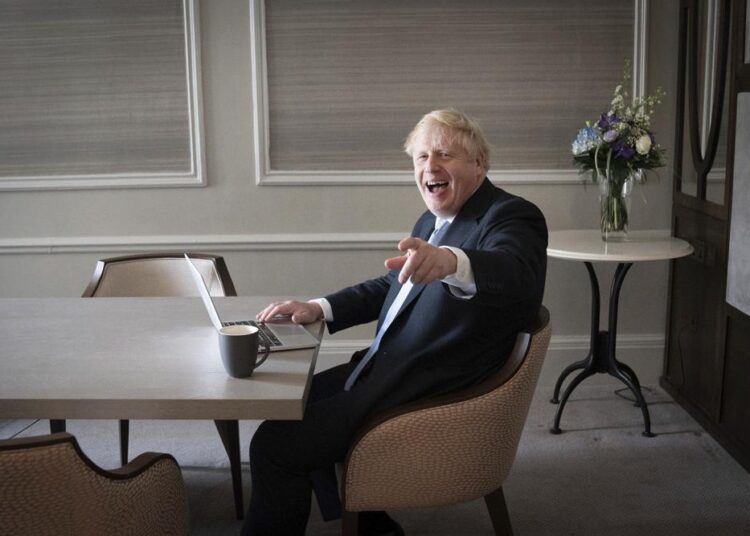MANCHESTER, England — Empty gas pumps, worker shortages, gaps on store shelves. It’s an autumn of inconvenience in Britain, if not quite a winter of discontent, AP reported.
But this week, Boris Johnson is in his element. The prime minister has shut his problems outside during the Conservative Party’s annual conference, speaking to supportive crowds, posing for selfies and clowning around on a bicycle inside a vast convention centre in Manchester.
Johnson ends the four-day conference Wednesday with a speech promising that Britain will emerge from Brexit and the coronavirus pandemic as a stronger, more dynamic country — even if the road is slightly rocky.
“There is no alternative,” Johnson said Tuesday, adopting a phrase used by former Prime Minister Margaret Thatcher, an iconic figure for Conservatives. “The UK has got to (become) — and we can do much, much better by becoming — a higher-wage, higher-productivity economy.”
Britain has been through a turbulent time since the party last met in person two years ago. Then, Johnson vowed to “get Brexit done” and take the UK out of the European Union after years of wrangling over exit terms.
That promise won Johnson a huge parliamentary majority in December 2019. He led Britain out of the EU last year, ending the UK’s seamless economic integration with a trading bloc of almost half a billion people. Britain also has been hammered by a coronavirus pandemic that has left more than 136,000 people in the UK dead, Europe’s highest toll after Russia.
The pandemic, which put much of the economy on ice, and Brexit, which made it harder for EU citizens to work in the UK, combined to throw the economy out of sync.
While not as dire as Britain’s infamous “Winter of Discontent” in 1978-79, when thousands of striking workers crippled essential services, a crisis that ultimately led to Thatcher’s election, the country has seen the most widespread economic disruption in years.
A shortage of truck drivers, due partly to a testing backlog and partly to an exodus of European workers, has snarled British supply chains. That has left supermarkets with some empty shelves, fast-food chains without chicken and gas pumps out of fuel.






Discussion about this post